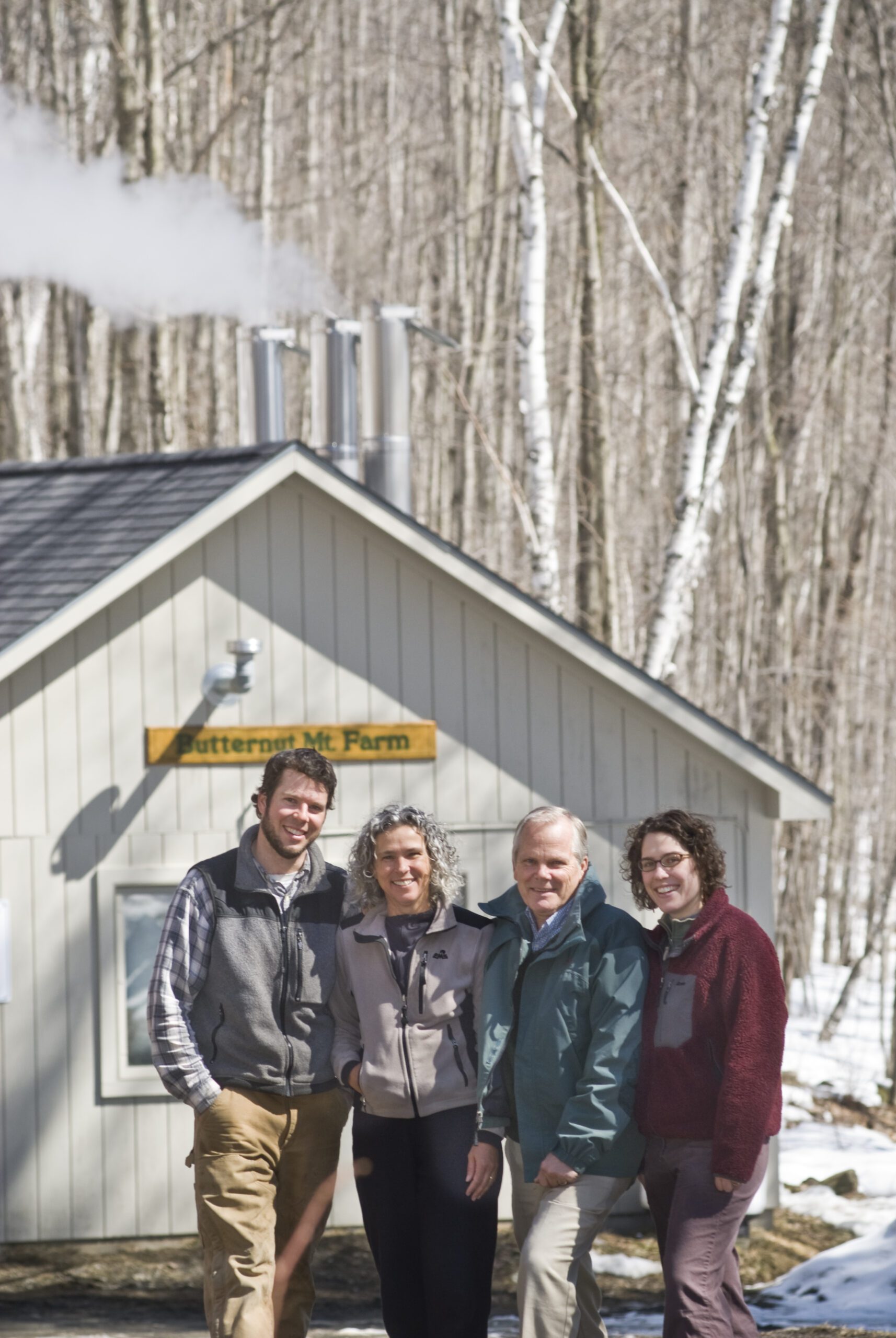 In the over 40 years they’ve been in business, Butternut Mountain has built a reputation as a leader in Vermont’s maple industry. The company is also taking the lead in other ways – demonstrating that including environmental stewardship in their business model is good for sustaining the resource they rely on, their employees, the community, and their bottom line.
In the over 40 years they’ve been in business, Butternut Mountain has built a reputation as a leader in Vermont’s maple industry. The company is also taking the lead in other ways – demonstrating that including environmental stewardship in their business model is good for sustaining the resource they rely on, their employees, the community, and their bottom line.
For Emma Marvin, one of the owners of Butternut Mountain Farm, including sustainability in their business plan makes good business sense. “We are dependent upon a naturally occurring resource — the sugar maple tree and the land upon which it grows — to provide us with our livelihood. Changes in climate and land-use, as well as development pressure, all pose the potential to significantly impact what we do. So beyond our inherent frugal Vermont nature, we have an added incentive to carefully steward the resources at hand.”
Butternut Mountain Farm has set goals to minimize the amount of waste sent to the landfill, to reduce energy consumption, to be a net sequester of carbon, and to make sure the land is well managed for health and long-term financial return. To advance these goals, the company has:
- Cut back to a 4-day workweek for production staff, reducing transportation emissions and energy and time associated with an additional day of production, and saving their workers transportation costs.
- Worked with Black Dirt Farm in Greensboro, VT to divert more than 68,400 lbs. of compostable materials from the landfill for use on a local VT farm.
- Participated in the SPEED program to install 363 roof mounted solar panels on their Morrisville facility.
- Recovered approximately 36,000 gallons of “sweet water” (syrup collected during the first rinse of equipment) avoiding high levels of organic matter in local waterways, and recovering useful product that might otherwise go to waste.

